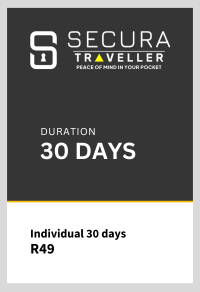Toolkits, FAQs, Guides, Webinars
Adventure Tourism Guides / Toolkits
SATSA’s Adventure Chapter Committee is developing self-regulation resources to support and strengthen the sector. The documents below are open to industry input at all times. Latest versions are listed, and new ones will be added as they are developed.
1. Adventure Tourism Self-Assessment Tool
Start here by measuring your alignment with global best practice. Our free self-assessment tool is designed to help adventure operators benchmark their operations across key areas of safety, sustainability, community engagement, and customer experience. It’s completely free to use — and if you choose to submit your results, you’ll receive a detailed score breakdown, tailored resources, and practical tips to help you grow and improve.
2. Roadmap (AT001)
- The Adventure Tourism Self-Regulation Roadmap sets out the structure and desired outcomes of the project.
3. General Code of Good Practice (CoGP) Guide (AT002)
- The General Code of Good Practice Guide provides compliance information and assistance in completing the CoGP Checklist.
4. General Code of Good Practice (GoGP) Checklist (AT003)
- The General Code of Good Practice Checklist was designed as a simple self-evaluation document to indicate compliance with the most generic aspects of any adventure tourism activity.
5. Adventure Industry Toolkits
To support the CoGP Checklist, we are in the process of developing toolkits to explain and expand on the various topics. These will be published here for public comment and will include, amongst others:
- Standard Operating Procedures (AT004)
- Risk, Safety & Incident Management (AT005)
- Participant Care (ATT006)
- Responsible Adventure Tourism (ATT007)
- Leadership & Guides (AT008)
6. Category-Specific Code of Good Practice
Development of category-specific CoGPs is currently underway for the categories listed below. This will consider the common requirements of all activities within a category. Further categories will be added regularly.- Boat-Based Activities (AT100) Draft
- Paddling Activities (AT200) Draft
- Hiking & Trekking Activities (AT300) Draft
- Aerial Non-Flight Activities (AT400) Draft
- Wheels-Based Activities (AT500) Draft
7. Individual Activity Standards
Once category-specific codes are developed, each activity will create unique standards, keeping in mind that all requirements of the General and Category-specific CoGPs are already in place.
We value your feedback to ensure the framework remains relevant and effective. Please email us here if you have any comments or suggestions on the above resources.
Geographic Spread and Tourism Prosperity
South Africa’s inbound tourism sector continues its steady recovery, currently standing at 81.79% of 2019 levels. While this is an encouraging milestone, it also highlights regional disparities in tourism growth. Some areas are bouncing back faster than others—often due to greater accessibility, stronger marketing efforts, and lower travel costs.
As the industry looks ahead, the need to diversify tourism beyond traditional hotspots has become increasingly urgent. Off-the-beaten-track destinations that offer authentic, value-for-money experiences are capturing growing interest from travellers. However, for these destinations to truly thrive, a more balanced and inclusive approach is required.
Key to achieving this is a stronger emphasis on collaboration across the tourism value chain, strategic infrastructure investment, and enhanced digital marketing efforts that highlight lesser-known gems.
Watch how this topic took centre stage in our thought-provoking discussion, bringing together industry leaders to explore how we can collectively drive a more geographically balanced tourism recovery, ensuring that all corners of South Africa benefit from the prosperity that tourism can bring.
- VAT and Inbound Tourism
As professionals in the industry, understanding the implications of VAT is paramount. To assist with this, SATSA hosted an insightful webinar in April 2024 to navigate the VAT complexities in the Inbound Tourism Sector.
Click here to view the webinar recording.
- SARS Traveller Declaration
SARS has introduced and is rolling out an online Traveller Declaration system at airports and border points across South Africa. You can download a quick and useful step-by-step infographic here.
They also have a very helpful website which provides details on:
- Tourism Safety
The following safety resources are available to the industry:
Wheel Operator Legalities
SATSA developed a toolkit to assist operators, guides, and drivers with the full application process, what to keep in the vehicle, and what to do when stopped by a traffic official.
The POPI Act and How it Applies to Tourism
South Africa’s Protection of Personal Information Act (POPIA), which took effect on 1 July 2020, requires all businesses that process personal information of both natural and juristic persons to comply with the Act’s eight conditions for lawful processing by 1 July 2021.
SATSA, in collaboration with industry experts, created and sourced the relevant resources and guides to better assist you with ‘getting’ POPI compliant.
- SATSA Webinar: Unpacking the POPI Act for Tourism Business. View the recording here.
- SATSA’s Privacy Toolkit
Immigration Compliance: What Tour Operators and Transport Providers Need to Know
Tour operators and transport providers are responsible for ensuring travellers have the correct documentation at South Africa’s ports of entry. Failure to comply can result in substantial fines, as seen in a recent case in which a company was penalised R15,000 per passenger for transporting travellers with incomplete visas.
To help operators navigate these requirements, we have compiled an FAQ guide outlining key legal obligations, best practices, and steps to take if challenges arise at the border.
For full details, access the FAQ guide here to ensure your business remains compliant.
SATSA Captive Wildlife Toolkit
Captive wildlife attractions and interactions remain complex, contentious and emotionally charged.
In response, SATSA embarked on comprehensive research, which resulted in a locally born toolkit consisting of a guide and an interactive decision tree tool. This allows tourism bodies, tour operators, and tourists to make informed decisions regarding animal interaction operations.
Focussing on products in the tourism value chain that offer animal interactions and considering factors such as the reasons for captivity, the source of animals, their use while in captivity, and their future destination, this tool goes beyond welfare concerns to address the full lifecycle of the animal interactions industry.
The study conveys findings and recommendations around:
- Performing animals (all types of animals, including elephants, predators, primates, cetaceans, birds, reptiles etc. trained to perform in a public show or display)
- Tactile interactions with infant wild animals (e.g., cub petting)
- Tactile interactions with predators or cetaceans (any interaction with land predators or aquatic mammals)
- Walking with predators or elephants
- Riding of animals (including sitting on elephants, ostriches etc.)
SATSA promotes the adoption and use of the toolkit across the tourism industry. However, it is important to note that the association does not endorse assessment outcomes by any organisation or private initiative and does not play any role in the assessment process.
To download the Toolkit, please click on the links below:
Library
Public Sector Tourism Strategies & Plans
National Documents:
Constitution of the Republic of South Africa
- The supreme law of South Africa that outlines the country's fundamental principles, values, and rights
- Adopted in 1996
- Last amended 27 July 2023 (Eighteenth Amendment) to recognise South African Sign Language as one of the official languages of the Republic
National Development Plan
- A long-term plan that outlines the vision and goals for South Africa's development over the next few decades
- Adopted in 2012 and active until 2030
Medium Term Development Plan
- Sets out the national priorities of the 7th Administration under the Government of National Unity, blending coalition party mandates into one shared roadmap.
- Anchored in the National Development Plan (NDP 2030), the plan focuses on inclusive economic growth, reducing poverty and the cost of living, and building an ethical, capable state.
- Acts as a five-year blueprint for government departments, aligning strategy, performance targets, and budgets across the state.
- Designed to ensure accountability, collaboration, and delivery, with annual progress tracked through departmental plans and central oversight from the Presidency and National Treasury.
Skills Development Act 97 of 1998
- Aims to develop South Africa’s workforce by improving the quality and relevance of skills through structured learning and workplace experience.
- Provides the legal framework for establishing Sector Education and Training Authorities (SETAs) and the National Skills Authority to drive skills planning and funding.
- Encourages employers to invest in employee training by offering incentives such as the Skills Development Levy and access to discretionary grants.
- Supports transformation, employment equity, and economic growth by targeting critical and scarce skills to improve employability and productivity.
Economic Recovery and Reconstruction Plan
- A government-led initiative aimed at rebuilding the country's economy, which has been negatively impacted by the COVID-19 pandemic and other economic challenges
- The plan focuses on several key areas, including infrastructure development, job creation, and support for small and medium-sized businesses
Re-Imagining Industrial Strategy
- A policy framework that aims to transform the country's industrial base and promote inclusive growth through increased investment in key sectors, such as manufacturing, agriculture, and services.
Tourism Specific Documents:
Tourism White Paper of 2024
The 2024 Tourism White Paper outlines South Africa's renewed strategy to develop and promote a sustainable, inclusive, and competitive tourism sector. It builds on the 1996 policy framework, addressing modern challenges like safety, technological advancements, and crisis management. The policy emphasises job creation, transformation, and leveraging digital innovation to boost economic growth and social cohesion. Extensive stakeholder consultations have shaped this roadmap, focusing on sustainability, partnerships, and enhancing visitor experiences.
Tourism White Paper of 1996
- A policy document to guide the development and growth of the tourism industry
- Definition: A white paper in South Africa is a broad statement of government policy that is drafted by the relevant department or a task team designated by the minister of that department1. A white paper is usually preceded by a green paper, which is a more preliminary discussion document. A white paper aims to chart a new path for social welfare and national social development in line with the United Nations World Summit for Social Development
- The Tourism White Paper, which was promulgated in 1996, has not undergone any review since then. As a result, it predates several government frameworks, including the National Development Plan (NDP)
Tourism Green Paper
- A policy document that outlines the government's vision and strategy for sustainable tourism development in the country
- Definition: A Green Paper is a government policy discussion paper that details specific issues and points out possible courses of action in terms of policy and legislation. It is a precursor for a White Paper. The Green Paper is drafted by the Ministry or department to show the way that it is thinking about a particular policy. The Green Paper is intended to stimulate broad discussion to inform a comprehensive long-term policy statement
- The Department of Tourism embarked on a process to review the Tourism White Paper and a Review Panel was appointed in October 2020 by the Minister of Tourism
- The Green paper was gazetted on 1 September 2023 and open for public comment until 31 October 2023
Tourism Act of 2014
- Legislation that aims to promote tourism in South Africa by establishing a legal framework for sustainable tourism development
- Preceded by the Tourism Act 1993 and the Tourism Amendment Act 2000
National Tourism Sector Strategy (NTSS)
- A ten-year plan to guide the development and growth of the tourism sector in the country
- Effective from 2016 to 2026
Tourism Sector Recovery Plan (TSRP)
- Adopted in 2020, launched in April 2021, and in effect until 31 March 2024, the TSRP was a sector plan developed to mitigate the impact of COVID-19 on the travel and tourism sector
- It was a product of collaboration with key stakeholders from government, sector, and other social partners and contained three strategic pillars:
- Protect and Rejuvenate Supply
- Re-ignite Demand
- Strengthening Enabling Capacity
- It was aligned with the Economic Recovery and Reconstruction Plan (ERRP) and had seven strategic interventions assigned to various implementing authorities/accountabilities with specific actions and timeframes
- Although now replaced by the Tourism Masterplan (see below), it is envisaged that TSRP priorities will be fully achieved by the end of the implementation timeframe being 31 March 2024
Tourism Sector Masterplan
- Important Note: The Tourism Sector Recovery Plan has been converted into the Tourism Sector Masterplan to extend the interventions’ timeframes
- The Masterplan, in effect until 31 March 2026, aims to stimulate the industry, labour, and government to collectively act on identified/shared goals to deliver tourism economic activity and jobs for the benefit of all South Africans
- It was developed by the Department of Tourism using strategic elements, sections, and best practices from both the National Tourism Sector Strategy (NTSS) and South Africa's Re-Imagining Industrial Strategy. The vision, mission, guiding principles, and values of the NTSS, which are in effect until 31 March 2026, are still relevant and have thus been incorporated into the Masterplan
- The Draft Masterplan was presented to the DGs’ ESIEID Cluster on 17 August 2023, inputs from the Presidency were incorporated and a preliminary sign-off/certificate was issued to proceed with a presentation to Parliament on 20 September 2023
- The Masterplan was gazetted on 13 October 2023 and is not open for public comment
- Implementation, monitoring, and reporting will be done as follows:
Tourism Sector Master Plan Executive Oversight Committee (EOC), which is the highest decision-making body, chaired by the Minister of Tourism
Tourism Sector Master Plan Steering Committee (Steerco), to provide oversight over the development and implementation of the Masterplan, co-chaired by the DG of Tourism and CEO of the TBCSA
Working and Industry Reference Groups to develop and implement specific aspects of the Masterplan. The existing NTSS Work Streams, aligned to the pillars/focus areas, will undertake responsibilities of the Working and Industry Reference Groups structure chaired by the respective DDGs of Tourism. These include 1) Effective Marketing, 2) Ease of Access, 3) Visitor Experience, 4) Destination Management, and 5) Broad-based Benefits.
Destination Knowledge
Western Cape
Cederberg Adventure Fam – April 2024
Hosted with Wesgro, we deep-dived into the rugged and remote Cederberg, Western Cape between 16 and 19 April 2024. Click here for a stunning overview video.
St Helena Island
St Helena Showcase - April 2024
St Helena Tourism hosted a group of 26 industry stakeholders, including SATSA, for a 7-day showcase of the island's tourism and investment offerings.
We do not possess enough poetic prowess to do justice to this unique destination, so we have opted to spark your interest with a short photo essay which can be downloaded by clicking on the image below.
Golf Tourism
























